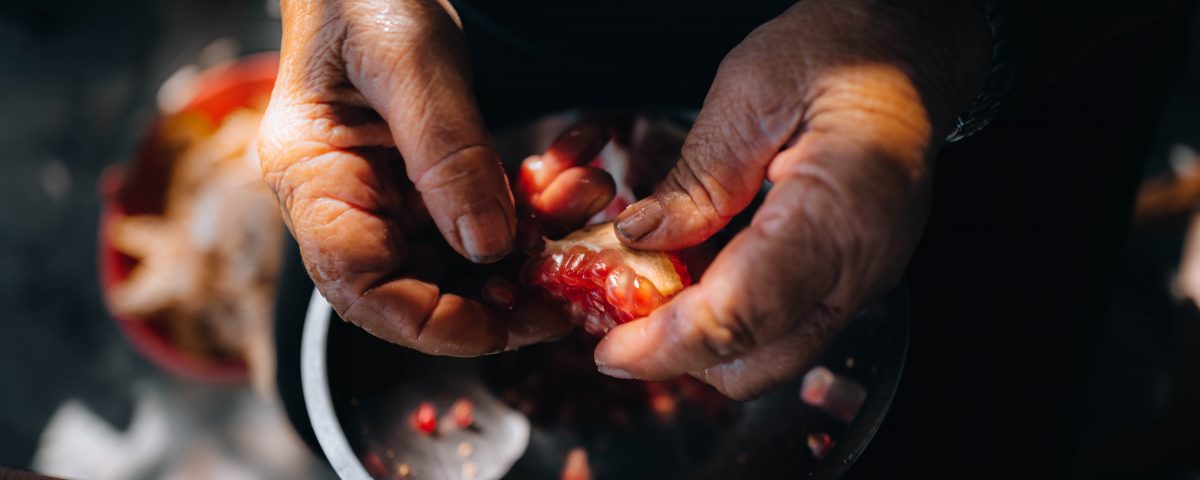
Walkscaping, a new travel perspective for Liguria
15 December 2020
On Liguria’s roof: Mount Saccarello and its refuge
21 December 2020What does your shopping say about you?
Shopping is a daily action that allows us to reach food products for our daily sustenance and pleasure. It is a simple action and everyone’s right. We do it on average twice a week and it dictates our habits. We all tend to have our trusted supermarket or the greengrocer who has become our friend, or even the butcher who knows our tastes perfectly.
Obviously it is not the same for everyone, there are different ways to approach shopping, there are those who create real paths, going from shop to shop and chatting with the owners or other customers; but other people prefer to buy their food without too many words and physical turns, for this there are super markets, where everything is easy to reach and autonomous: it’s just a matter of preferences.
We can therefore say that our spending defines us from many points of view, even if we probably do not realize it, unaware of the fact that this type of choices determine not only us but also everything that surrounds us in a deep and rooted way.
It is a question of point of view
Food is an invisible but very strong bond with others, with ourselves and with the land we live in. Since the mid-20th century, the meaning of food has undergone several changes. Globalization has led to an effective change in the way food is produced and distributed by making sure that food products are increasingly available, at increasingly affordable prices.
Without hunger, there is a big problem for most: society can grow, increasing well-being, working on rights and breaking down barriers. However, it is interesting to observe how food solves a problem on the one hand, but creates a thousand others on the other. Food productions dictate our choices, shape the places we live in and our rhythms.
But in order to guarantee the presence of food for those who are the consumer countries and at the base of the world economy, food production has grown dramatically, eliminating variety, in order to create a precise, efficient and replicable system, at the expense of the rest. of the world. Food is therefore subordinated to economic laws based on supply and demand, which obviously develop the market where there is money.
Food is not only our livelihood, but also the link with reality.
The fact that this concept has been almost completely alienated has disastrous consequences. From the moment in which the idea of a thread that binds us to the ground disappears and therefore the fact that nothing is taken for granted, that there is an enormous amount of work behind it, causes bad results. It’s just a question of dismissing the problem. We are a world of contrasts, dictated by competition and exploitation.
According to “The State of Food Security and Nutrition in the World 2018” 821 million people suffer from hunger, that is 1 in 9 inhabitants of the planet. Yet, it is not that we do not produce enough food. The problem is caused by a discriminating and invasive economic system. It should also be emphasized that it is not a question of Western countries taking care of the “less developed” countries by bringing food in a gesture of compassion, but rather it is necessary to realize that if part of humanity is hungry it is because the other half it has none.
The price of sustainability
The dilemma of quality and quantity plagues our system, creating a clear and discriminatory split in the market. Obviously this is not an exclusive problem of food production. It is a problem that arises from a globalized economy and from an industrial perspective. The promise of the industry is that as long as this exists no one will starve, thus becoming a champion of abundance (therefore of quantity): to produce without restraints, in a linear perspective.
This is obviously not the case. No One Will Starve – Where? At what price? Does quantity equal waste? The system that feeds us follows money, producing in quantity means competitiveness, waste, environmental impact and hunger. Quantity chases those who can afford it. Again we are not talking about an elite of billionaires, but rather about that part of the world population that has been made dependent on this system based on the law of rise and spasmodic consumption, in which the winner is the one who buys the most at the lowest price.
Eating is only a question of money and not of quality:
we would like to reflect for a moment on this phrase, which we think is not new to anyone’s ear. Food and money are two taboos in the society we live in, because both are essential elements for survival in this world. Talking about food in its lack is anguish and a lack of respect, while talking about food where it abounds is presumptuous, because one should only be grateful for not living in that part of the world where it is lacking. And the same goes for money, pay attention to it.
Lack and abundance are not related, it is just a matter of luck, thank you for being born in that part of the hemisphere where you can afford not to talk about food because in the meantime you will never miss it. Instead it is important to understand that it is not a matter of luck and that we are all responsible for this gap. Quantity, as we understand it, is what accompanies us in our decline as humanity and in climate decline.
Food production plays a crucial role,
as it causes 30% of the impact on the climate, as well as being the sector in which the worst humanitarian injustices occur, for which rights are annulled and trampled on. That said, it is very important to move on to quality. Also in this case, quality is not spoken of as salvation, but rather as a further point of division and discrimination.
In a society where quantity dominates and where consumption dictates people’s wishes and needs, quality is often a trait misunderstood, exploited and criticized as something inaccessible, exceptional and superfluous. Quality is often combined with luxury. Well, we think the time has come to break down this idea and analyze the concept of quality for what it really is. It is absurd how much this feature is underestimated, but the arguments that bring quality to a whole other level are endless, but right now it is right to analyze two in particular, which we hope will be food for thought.
The quality of food is not an optional:
food is that element of our life that relates us to reality and makes us work better. Without quality and without awareness, what we eat clogs the gears, both of our physique and of the social and environmental systems in which we live.
Quality ensures that food production can maintain their biodiversity.
Quality does not mean quantity, but variety.
As we said earlier, quantity is conceived as the only solution to the common demand of westernized countries, but this alienates us from the other solutions. Quality = variety = sustainability. Thus by destroying the stereotype of quality, many other concepts can be reinvented, such as competitiveness. A world that feeds on quality cannot afford the competitiveness we know today. Quality requires collaboration and mutual support: we are not talking about a single and globalizing market, but a network made up of many communicating realities that cover micro-areas, but with a view to sustaining a macro-area.
This wants to be a proposal and an awareness of the fact that to make quality something accessible to all, we need to be more aware of what it means, we need to recognize who makes quality. Quality and therefore sustainability cost money, because they respond to market laws that do not suit them. It is difficult to do things well and this is the great paradox of our world, the fact that not everyone can afford simplicity.
Italy is fortunate to have a very strong widespread identity,
which has allowed the maintenance of many productions and the evolution of new systems in line with the protection of the territory. The shops, markets and small producers are all tools at our disposal to get to know, interact, protect and protect ourselves. Our appeal is intended to be an invitation to participate and not to ignore the systems that surround our cities and our countries.
Everything has a rhythm and everything changes, but it is very important to observe these evolutions by being part of them, living and tasting the territories. This point of view, once learned, is the key to reading all the places we visit, from the closest to the most distant, teaching us observation and respect, allowing us to move and live in a sustainable way.
Vittoria Rapone

